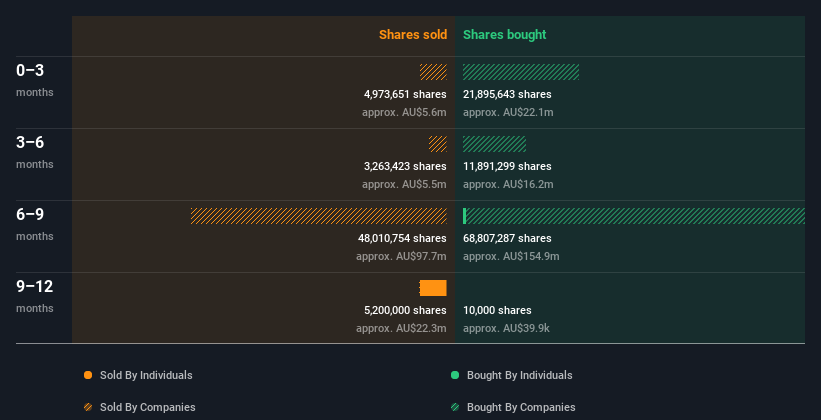As Redbubble Limited's market cap (ASX:RBL) drops to AU$195m, insiders might be questioning their decision to buy earlier this year
The recent 15% drop in Redbubble Limited's (ASX:RBL) stock could come as a blow to insiders who purchased AU$1.3m worth of stock at an average buy price of AU$1.74 over the past 12 months. Insiders invest with the hopes of seeing their money grow in value over time. However, as a result of recent losses, their initial investment is now only worth AU$513k, which is not what they expected.
Although we don't think shareholders should simply follow insider transactions, we would consider it foolish to ignore insider transactions altogether.
View our latest analysis for Redbubble
The Last 12 Months Of Insider Transactions At Redbubble
In the last twelve months, the biggest single purchase by an insider was when Co-Founder & Non-Executive Director Martin Hosking bought AU$803k worth of shares at a price of AU$1.70 per share. That means that an insider was happy to buy shares at above the current price of AU$0.71. Their view may have changed since then, but at least it shows they felt optimistic at the time. To us, it's very important to consider the price insiders pay for shares. As a general rule, we feel more positive about a stock if insiders have bought shares at above current prices, because that suggests they viewed the stock as good value, even at a higher price.
In the last twelve months Redbubble insiders were buying shares, but not selling. The chart below shows insider transactions (by companies and individuals) over the last year. If you click on the chart, you can see all the individual transactions, including the share price, individual, and the date!
Redbubble is not the only stock insiders are buying. So take a peek at this free list of growing companies with insider buying.
Insider Ownership Of Redbubble
Another way to test the alignment between the leaders of a company and other shareholders is to look at how many shares they own. Usually, the higher the insider ownership, the more likely it is that insiders will be incentivised to build the company for the long term. Insiders own 19% of Redbubble shares, worth about AU$37m. This level of insider ownership is good but just short of being particularly stand-out. It certainly does suggest a reasonable degree of alignment.
So What Do The Redbubble Insider Transactions Indicate?
There haven't been any insider transactions in the last three months -- that doesn't mean much. However, our analysis of transactions over the last year is heartening. Overall we don't see anything to make us think Redbubble insiders are doubting the company, and they do own shares. While we like knowing what's going on with the insider's ownership and transactions, we make sure to also consider what risks are facing a stock before making any investment decision. You'd be interested to know, that we found 1 warning sign for Redbubble and we suggest you have a look.
Of course Redbubble may not be the best stock to buy. So you may wish to see this free collection of high quality companies.
For the purposes of this article, insiders are those individuals who report their transactions to the relevant regulatory body. We currently account for open market transactions and private dispositions, but not derivative transactions.
Have feedback on this article? Concerned about the content? Get in touch with us directly. Alternatively, email editorial-team (at) simplywallst.com.
This article by Simply Wall St is general in nature. We provide commentary based on historical data and analyst forecasts only using an unbiased methodology and our articles are not intended to be financial advice. It does not constitute a recommendation to buy or sell any stock, and does not take account of your objectives, or your financial situation. We aim to bring you long-term focused analysis driven by fundamental data. Note that our analysis may not factor in the latest price-sensitive company announcements or qualitative material. Simply Wall St has no position in any stocks mentioned.
Join A Paid User Research Session
You’ll receive a US$30 Amazon Gift card for 1 hour of your time while helping us build better investing tools for the individual investors like yourself. Sign up here

 Yahoo Finance
Yahoo Finance 
